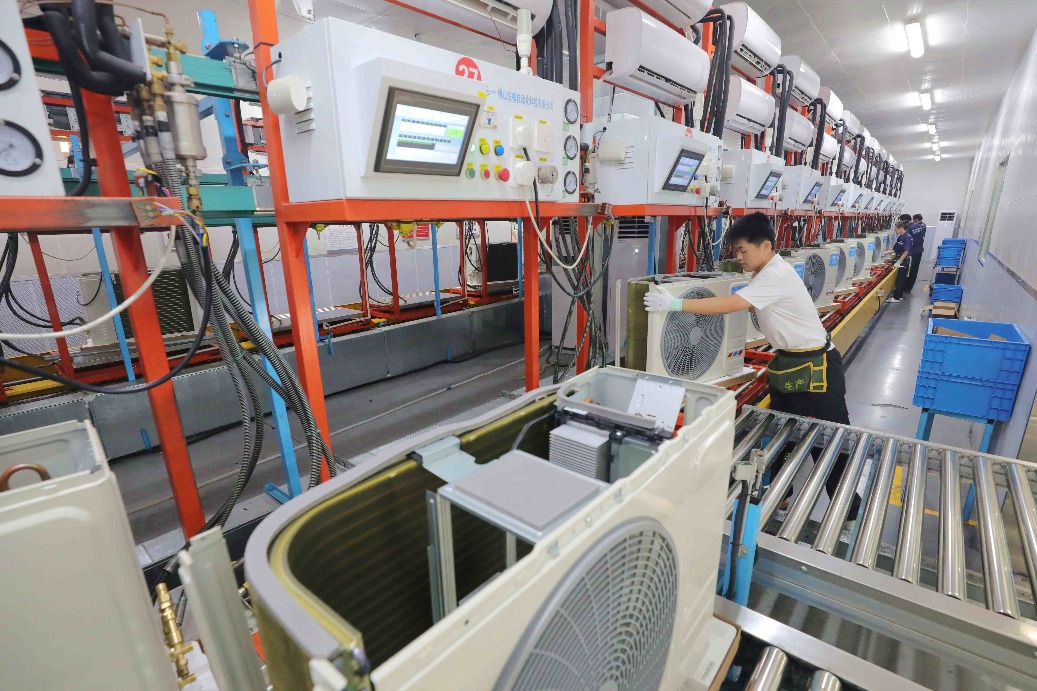Experts call for building policy consensus on bold fiscal reforms


It is time to build a policy consensus on China's space for bold fiscal expansion, leveraging it for deep reforms aimed at improving social welfare and accelerating the country's much-anticipated economic rebalancing, according to leading economists and policy advisers at top think tanks.
Li Daokui, dean of the Institute for Chinese Economic Practice and Thinking at Tsinghua University, told China Daily that reforming China's fiscal framework could hold the key to tackling multiple economic challenges — including local government fiscal stress, underperforming domestic demand and oversupply in some emerging sectors.
According to Li, the core problem facing the Chinese economy is the excessive debt burden on local governments, which has led them to seek short-term revenue flows such as taxes and fees on businesses and households, weighing on the consumption and investment willingness of market entities.
To break this cycle, Li has proposed a shift away from the traditional concept of public finance — which focuses on short-term budget balancing — to a model of public financial management, which emphasizes long-term balance sheet health and cash flow sustainability.
A central policy recommendation, Li said, is for the government to significantly expand long-term sovereign bond issuances, potentially reaching 30 to 50 trillion yuan ($4.18 trillion to $6.97 trillion) over the next two to three years.
Making the remarks on the sidelines of the 2025 ZGC Forum's Global Forum of Finance and Economics, Li said the proposed sovereign bond issuances would serve four key functions — restructuring local government debt, purchasing unsold housing stock for affordable housing, financing the urban integration of migrant workers and encouraging the orderly exit of excess production capacity in sectors such as electric vehicles.
With a high national savings rate and significant State-owned assets at the central level, Li said China has the resources and institutional capacity to implement the reforms. "The measures proposed can kick off smoother and more dynamic economic circulation," Li said.
Chinese Premier Li Qiang on Wednesday presided over a State Council executive meeting that studied the implementation of key policy measures aimed at strengthening domestic economic circulation, emphasizing the need to advance special initiatives to boost consumption.
"We need to build a welfare society right now in this stage of Chinese economic growth," said Yan Se, an associate professor of applied economics at Guanghua School of Management, Peking University, urging for broader fiscal reforms to improve public well-being, including enhancing wages and unemployment insurance.
Yan, also deputy director of the Economic Policy Research Institute at Peking University, said that workers in overcapacity sectors need adequate unemployment benefits and a stronger welfare safety net to enable their transition to more advanced industries — a key step in rebalancing supply and demand across many sectors.
To support such structural transformation, policymakers need to fully acknowledge the space available for proactive fiscal policy, Yan said, as China has traditionally maintained a cautious stance on fiscal expansion, adhering to a balanced budget approach.
The country, in effect, has significant room for bolder fiscal expansion, including in areas such as social welfare, Yan said at a media salon.
While progress may be gradual, Yan said a shift in fiscal mindset is underway. As a sign of this change, the government has raised its budgeted deficit-to-GDP ratio to around 4 percent this year, up from the longstanding 3 percent threshold.
Ouyang Shijia contributed to this story.
zhoulanxv@chinadaily.com.cn




































